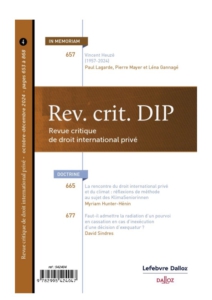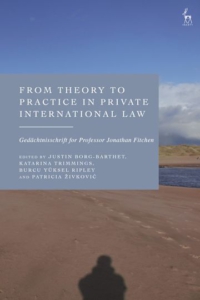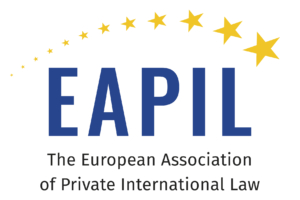Written by Eduardo Silva de Freitas (Erasmus University Rotterdam) and Xandra Kramer (Erasmus University Rotterdam/Utrecht University), members of the Vici project Affordable Access to Justice, financed by the Dutch Research Council (NWO), www.euciviljustice.eu.
Introduction
After extensive negotiations, on 24 April 2024, the European Parliament approved the Corporate Sustainability Due Diligence Directive (CSDDD or CS3D) as part of the EU Green Deal. Considering the intensive discussions, multiple changes, and the upcoming elections in view, the fate of the Commission’s proposal has been uncertain. The Directive marks an important step in human rights and environmental protection, aiming to foster sustainable and responsible corporate behaviour throughout global value chains. Some Member States have incorporated similar acts already, and the Directive will expand this to the other Member States, which will also ensure a level playing field for companies operating in the EU. It mandates that companies, along with their associated partners in the supply chain, manufacturing, and distribution, must take steps to avoid, halt, or reduce any negative effects they may have on human rights and the environment. The Directive will apply to big EU companies (generally those with more than 1,000 employees and a worldwide turnover of more than EUR 450 000 000) but also to companies established under the law of a third country that meet the Directive’s criteria (Article 2 CSDDD).
Among the CSDDD’s key provisions is the rule on civil liability enshrined in Article 29. This rule states that companies shall be held liable for damages caused in breach of the Directive’s provisions. Accompanying such a rule are also some provisions that deal with matters of civil procedure and conflict of laws, though as has been pointed out earlier on this blog by Kilimcioglu, Kruger, and Van Hof, the CSDDD is mostly silent on PIL. When the Commission proposal was adopted in 2022, Michaels and Sommerfeld elaborated earlier on this blog on the consequences of the absence of rules on jurisdiction in the CSDDD and referred to the Recommendation of GEDIP in this regard. The limited attention for PIL aspects in the CSDDD is does not mean that the importance of corporate sustainability and human rights is not on the radar of the European policy maker and legislator. In the context of both the ongoing evaluation of the Rome II Regulation and Brussels I-bis Regulation this has been flagged as a topic of interest.
This blog post briefly discusses the CSDDD rules on conflict of laws and (international) civil procedure, which underscore the growing importance of both in corporate sustainability and human rights agendas.
Conflict of laws and overriding mandatory provisions
The role of PIL in the agenda of business and human rights has increasingly received scholarly attention. Noteworthy works addressing this intersection include recent contributions by Lehmann (2020), as well as volumes 380 (Van Loon, 2016) and 385 (Marrella, 2017) of the Collected Courses of The Hague Academy of International Law. Additionally, pertinent insights can be found in the collaborative effort of Van Loon, Michaels, and Ruiz Abou-Nigm (eds) in their comprehensive publication, The Private Side of Transforming our World (2021). From an older date is a 2014 special issue of Erasmus Law Review, co-edited by Kramer and Carballo Piñeiro on the role of PIL in contemporary society.
While the CSDDD contains only a singular rule on PIL, specifically concerning overriding mandatory provisions, it should be viewed in the broader EU discourse. The relevance of PIL for the interaction between business and human rights extends beyond this single provision, as evidenced by the Commission’s active role in shaping this development. As indicated earlier, this is further indicated by studies on both the Rome II and Brussels I-bis Regulations, both of which delve into the complexities of PIL within the business and human rights debate. Thus, the CSDDD’s rule should not be viewed in isolation, but as part of a larger, dynamic conversation on PIL in the EU.
The mentioned Rome II Evaluation Study (2021) commissioned by the Commission, summarised on this blog here, assessed Rome II’s applicability to matters pertaining to business and human rights in detail. With regards to overriding mandatory provisions, the study outlines several initiatives at national level in the Member States that were discussed or approved to enact a mandatory corporate duty of care regarding human rights and the environment. Likewise, the Brussels I-bis Evaluation Study (2023) also examined how the Brussels I-bis applies to business and human rights disputes. Within the EU, establishing jurisdiction over EU-domiciled companies is straightforward under the Regulation, but it becomes complex for third-country domiciled defendants. Claims against such defendants are not covered by the Regulation, leaving jurisdiction to national laws, resulting in varied rules among Member States. Forum necessitatis and co-defendants rules may help assert jurisdiction, but lack harmonization across Europe. In this context, as explained by Michaels and Sommerfeld, while the CSDDD applies to certain non-EU firms based on their turnover in the EU (Article 2(2)), jurisdictional issues persist for actions against non-EU defendants in EU courts, with jurisdiction typically governed by national provisions. This could result in limited access to justice within the EU if relevant national rules do not establish jurisdiction.
As was mentioned above, the CSDDD is mostly silent on PIL. However, it does include a rule on overriding mandatory provisions enshrined in Article 29(7) and accompanying Recital 90. This rule aims to ensure the application of the (implemented) rules of the CSSDD regardless of the lex causae. Under EU private international law rules, the application of overriding mandatory provisions is also enabled by Article 9 Rome I Regulation and Article 16 Rome II Regulation.
Article 29(7) CSDDD states that ‘Member States shall ensure that the provisions of national law transposing’ Article 29 CSDDD ‘are of overriding mandatory application in cases where the law applicable to claims to that effect is not the national law of a Member State’. A similar provision to that effect can be found in the draft UN Legally Binding Instrument on business and human rights.
This means that the national laws transposing Article 29 CSDDD in their liability systems are applicable irrespective of any other conflict of law provisions in force. This rule also extends to the matters of civil procedure addressed below, as explicitly stated by Recital 90 CSDDD. On this matter, the potential for the CSDDD to become a dominant global regulatory force and overshadow existing and future national regulations, which is only beneficial if effectively prevents and remedies corporate abuses, has been highlighted. However, there is concern that it might mitigate the development of stronger regulatory frameworks in other countries (see FIDH, 2022).
Matters of civil procedure
The rules contained in the CSDDD that pertain to civil procedure are essentially laid down in Article 29(3). These rules on civil procedure naturally apply to both domestic cases and cross-border situations.
Firstly, Article 29(3)(b) CSDDD states that the costs of judicial proceedings seeking to establish the civil liability of companies under the Directive shall not be prohibitively expensive. A report published in 2020 by the EU Agency for Fundamental Rights (FRA) on ‘Business and human rights – access to remedy’ stressed that private individuals face significant financial risks when resorting to courts due to high costs such as lawyer fees, expert opinions, and potential liability for the opposing party’s costs, particularly daunting in cases involving large companies. Suggestions for improvement include making litigation costs proportionate to damages, providing free legal representation through state bodies, and setting thresholds for the losing party’s financial obligations, along with supporting civil society organizations offering financial and legal aid to victims of business-related human rights abuses. Secondly, Article 29(3)(c) CSDDD provides the possibility for claimants to seek definitive and provisional injunctive measures, including summarily, of both a restorative or enforcing nature, to ensure compliance with the Directive. Lastly, Article 29(3)(d) and (e) CSDDD, respectively, outline rules on collective actions and disclosure of evidence, the latter two explained below.
Collective actions
The FRA report mentioned above emphasized that many legal systems in the EU lack effective collective redress mechanisms, leading to limited opportunities for claimants to seek financial compensation for business-related human rights abuses. Existing options often apply only to specific types of cases, such as consumer and environmental protection, with procedural complexities further restricting their scope. Article 29(3)(d) CSDDD ensures that collective action mechanisms are put in place to enforce the rights of claimants injured by infringements of the Directive’s rules. This provision states that ‘Member States shall ensure that […] reasonable conditions are provided for under which any alleged injured party may authorise’ the initiation of such proceedings. In our view, if this provision is interpreted in a similar way as the alike-rule on private enforcement contained in Article 80(1) GDPR (which uses the synonym ‘mandate’), then this collective action mechanism shall operate on an opt-in basis (see Pato & Rodriguez-Pineau, 2021). The wording of both provisions points to a necessity of explicit consent from those wishing to be bound by such actions. Recital 84 CSDDD further underscores this interpretation by stating that this authorisation should be ‘based on the explicit consent of the alleged injured party’. Importantly, this is unrelated to the collective enforcement of other obligations, outside the scope of the CSDDD, that may impinge upon the types of companies listed in Article 3(1)(a) CSDDD, like those stemming from financial law and insurance law (e.g. UCITS Directive, EMD, Solvency II, AIFMD, MiFID II, and PSD2). All the latter are included in Annex I Representative Actions Directive (RAD) and therefore may be collectively enforced on an opt-out basis pursuant to Article 9(2) RAD (see Recital 84 CSDDD).
Furthermore, Article 29(3)(d) CSDDD grants the Member States the power to set conditions under which ‘a trade union, non-governmental human rights or environmental organisation or other non-governmental organisation, and, in accordance with national law, national human rights’ institutions’ may be authorized to bring such collective actions. The Directive exemplifies these conditions by mentioning a minimum period of actual public activity and a non-profit status akin to, respectively, Article 4(3)(a) and (c) RAD, as well as Article 80(1) GDPR.
In our view, the most relevant aspect of the collective action mechanism set by the CSDDD is that it provides for the ability to claim damages. Indeed, Article 29(3)(d) CSDDD allows the entities referred therein to ‘enforce the rights of the alleged injured party’, without making any exceptions as to which rights. This is an important recognition of the potentially pervasive procedural imbalance that can affect claimants’ abilities to pursue damages against multinational corporations in cases of widespread harm (see Kramer & Carballo Piñeiro, 2014; Biard & Kramer, 2018; Buxbaum, Collected Courses of The Hague Academy of International Law 399, 2019).
Disclosure of evidence
Finally, Article 29(3)(e) CSDDD enacts a regime of disclosure of evidence in claims seeking to establish the civil liability of companies under the Directive. This provision, similar to Article 6 IP Enforcement Directive, Article 5 Antitrust Damages Directive, and Article 18 RAD, seeks to remedy the procedural imbalance of evidentiary deficiency, existent when there is economic disparity between the parties and unequal access to factual materials (see Vandenbussche, 2019).
When a claim is filed and the claimant provides a reasoned justification along with reasonably available facts and evidence supporting their claim for damages, courts can order the disclosure of evidence held by the company. This disclosure must adhere to national procedural laws. If such a disclosure is requested in a cross-border setting within the EU, the Taking of Evidence Regulation also applies.
Courts must limit the disclosure of evidence to what is necessary and proportionate to support the potential claim for damages and the preservation of evidence. Factors considered in determining proportionality include the extent to which the claim or defense is supported by available evidence, the scope and cost of disclosure, the legitimate interests of all parties (including third parties), and the need to prevent irrelevant searches for information.
If the evidence contains confidential information, especially regarding third parties, Member States must ensure that national courts have the authority to order its disclosure if relevant to the claim for damages. Effective measures must be in place to protect this confidential information when disclosed.
Outlook
The CSDDD regime on civil procedure described above largely follows the EU’s ‘silo mentality’ (Voet, 2018) of enacting sectoral-based and uncoordinated collective action mechanisms tied to a specific area of substantive law, such as consumer law, non-discrimination law, and environmental law (e.g. UCTD, RED, UCPD, IED, EIAD, etc.). An important difference being, however, that this time the RAD is already in force and being implemented. On this matter, Recital 84 CSDDD states that Article 29(3)(d) CSDDD ‘should not be interpreted as requiring the Member States to extend the provisions of their national law’ implementing the RAD.
However, being the first EU-wide collective action mechanism and prompting historically collective action-sceptic Member States to adapt accordingly, it is conceptually challenging to posit that the RAD would not potentially influence regimes on collective actions beyond consumer law, including the CSDDD. In this context, it would not deviate significantly from current developments if some Member States opted for a straightforward extension of their existing and RAD-adapted collective action regimes to the CSDDD, though that demands caution to the latter’s specificities and is not legally required.
Another aspect worthy of attention is how these collective actions would be funded. Since such actions may seek damages compensation for widespread harm under Article 29 CSDDD, they can become notably complex and, consequently, expensive. At the same time, a large number of injured persons can mean that these collective actions will ask for high sums in damages. These two factors combined make these collective actions an enticing investment opportunity for the commercial third-party litigation funding (TPF) industry. The CSDDD does not make any reservations in this regard, leaving ample room for Member States to regulate, or not, the involvement of commercial TPF. A report published in mid last year by Kramer, Tzankova, Hoevenaars, and Van Doorn by request of the Dutch Ministry of Justice and Security found that nearly all collective actions seeking damages in the Netherlands make use of commercial TPF. This underscores the crucial role commercial TPF plays in financing such actions, significantly impacting access to justice.
Moreover, the complexities surrounding the integration of PIL into specialized legislation such as the CSDDD, the GDPR, and the anti-SLAPPs Directive reflect a tension between the European Parliament and the Commission. This tension revolves around the extent to which PIL should be addressed within specialized frameworks versus traditional EU legislation on PIL. So far, a clear direction in this regard is lacking, which will trigger further discussions and potential shifts in approach within the EU legislative landscape.

 Written by Hadrien Pauchard (
Written by Hadrien Pauchard ( Written by Justin Borg-Barthet, Katarina Trimmings, Burcu Yüksel Ripley and Patricia Živkovic
Written by Justin Borg-Barthet, Katarina Trimmings, Burcu Yüksel Ripley and Patricia Živkovic We are please to announce that registration for the next bi-annual conference of the
We are please to announce that registration for the next bi-annual conference of the